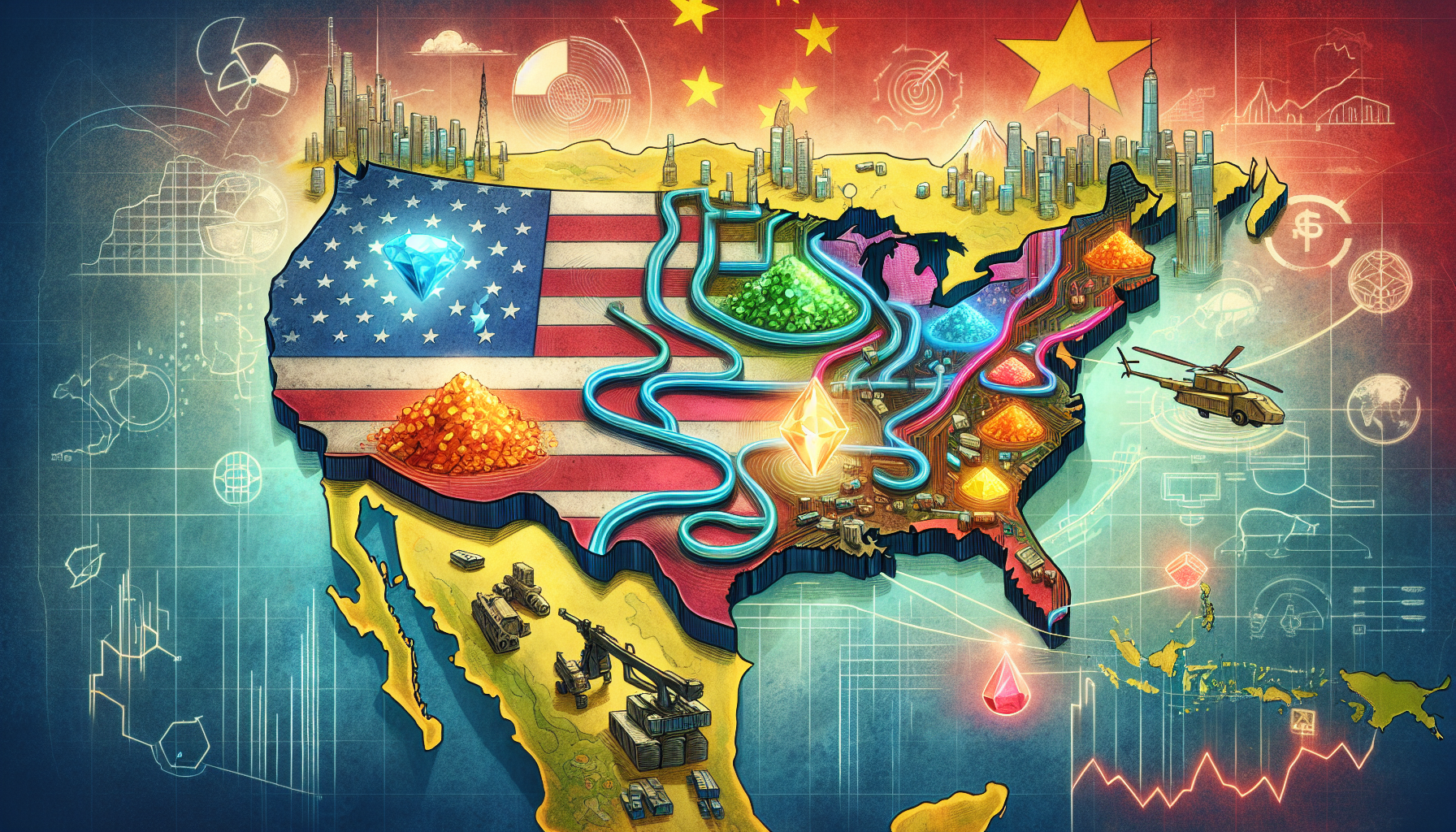Another own goal by Trump “U.S. agencies alarmed by China’s curbs on exports of rare-earth minerals” https://t.co/VTAND2kbKs
— Michael McFaul (@McFaul) April 24, 2025
China’s new export restrictions on rare earth elements have sent shockwaves through global markets and raised concerns about the security of critical mineral supply chains. The restrictions, which require companies to obtain special export licenses for seven rare earth elements and magnets, are expected to cause disruptions in supply, particularly for U.S. firms in the defense and aerospace industries. The United States is particularly vulnerable to these restrictions, as it relies heavily on China for the supply of medium and heavy rare earths.
China's ban on rare earth exports set off alarm bells at the Pentagon, potentially causing a supply chain crisis that could disrupt industries ranging from iPhone production to Tesla's manufacturing。pic.twitter.com/Q9BMCWPx7O
— Zhang Meifang (@CGMeifangZhang) April 27, 2025
These elements are critical for a range of defense technologies, including F-35 fighter jets, submarines, missiles, radar systems, and smart bombs. For example, an F-35 fighter jet contains over 900 pounds of rare earth elements, while a Virginia-class submarine uses around 9,200 pounds. The Department of Defense has been working to develop a domestic rare earths supply chain, committing over $439 million toward building facilities for light and heavy rare earths separation.
A little bit of my new book INTO THE GRAY ZONE in the news. Should have had Pike on this years ago…#intothegrayzone #PikeLogan #specialoperations #RareEarthElements #india #hybridwarfarehttps://t.co/Quw26vucaV
— Brad Taylor Books (@BradTaylorBooks) April 24, 2025
China’s export restrictions shake supply
However, even with these investments, domestic production of critical magnets is projected to be only a fraction of China’s output. The prospect of rare earth export restrictions has been apparent for some time, with China first “weaponizing” rare earths in 2010 during a dispute with Japan.
One of the reasons I formed the growing Congressional Greenland Caucus…
More news soon. https://t.co/mG066WpuTC
— Warren Davidson 🇺🇸 (@WarrenDavidson) April 24, 2025
Between 2023 and 2025, China began imposing strategic material export restrictions on various elements, including gallium, germanium, antimony, graphite, and tungsten. While several countries, including Australia, Brazil, South Africa, Saudi Arabia, Japan, and Vietnam, are developing their light and heavy rare earths industries, China currently maintains a monopoly on refined heavy rare earths. The United States may need to foster long-term international partnerships to achieve greater supply chain security.
The path to establishing an independent and robust U.S. rare earth elements supply chain is long and fraught with challenges, but recent developments underscore the critical need for strategic investments and international collaboration. As the global community grapples with the implications of China’s export restrictions, it is clear that securing access to these critical minerals will be a key priority for nations seeking to maintain their technological and military edge in the years to come.

